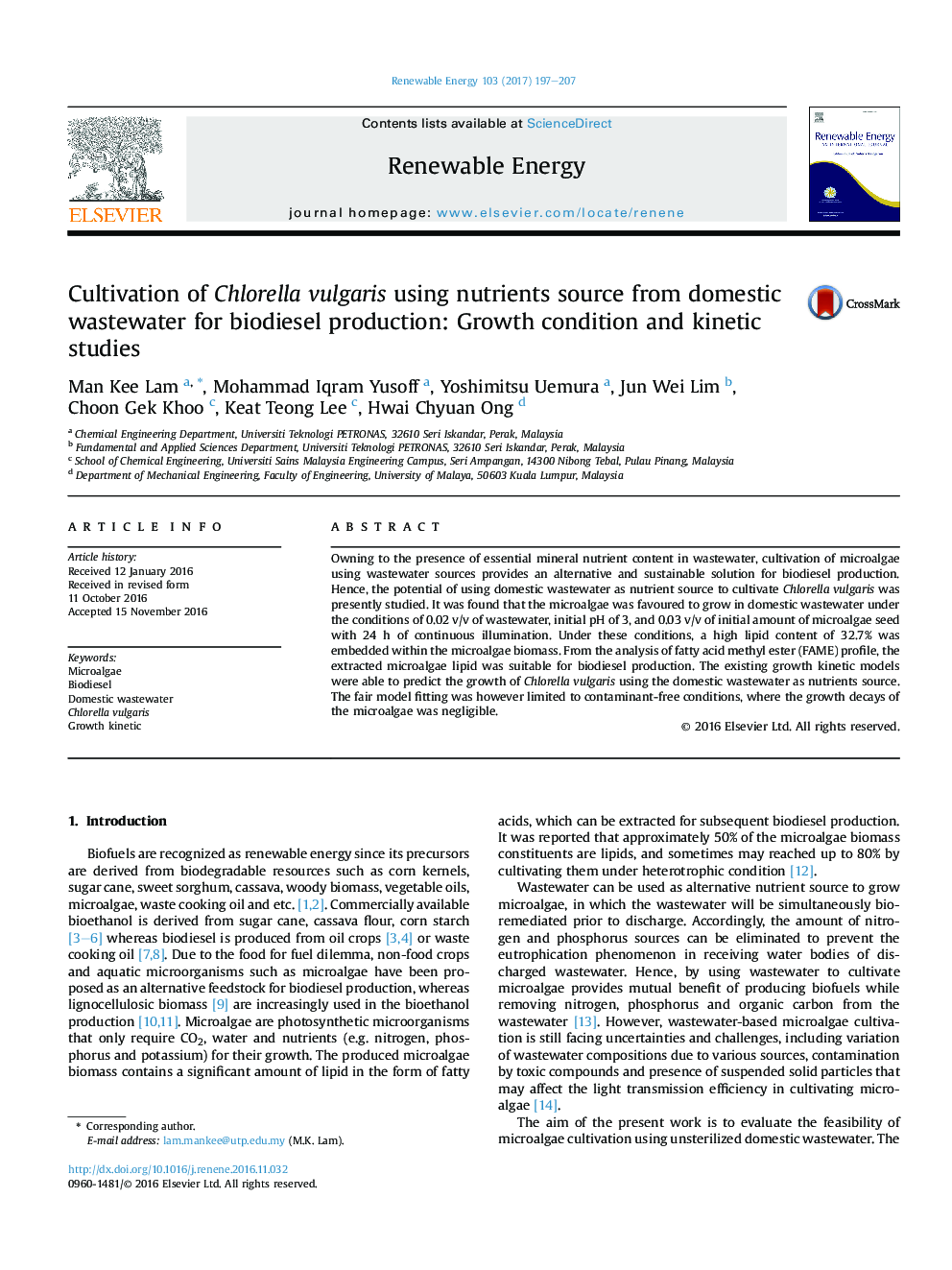| Article ID | Journal | Published Year | Pages | File Type |
|---|---|---|---|---|
| 4926567 | Renewable Energy | 2017 | 11 Pages |
Abstract
Owning to the presence of essential mineral nutrient content in wastewater, cultivation of microalgae using wastewater sources provides an alternative and sustainable solution for biodiesel production. Hence, the potential of using domestic wastewater as nutrient source to cultivate Chlorella vulgaris was presently studied. It was found that the microalgae was favoured to grow in domestic wastewater under the conditions of 0.02Â v/v of wastewater, initial pH of 3, and 0.03Â v/v of initial amount of microalgae seed with 24Â h of continuous illumination. Under these conditions, a high lipid content of 32.7% was embedded within the microalgae biomass. From the analysis of fatty acid methyl ester (FAME) profile, the extracted microalgae lipid was suitable for biodiesel production. The existing growth kinetic models were able to predict the growth of Chlorella vulgaris using the domestic wastewater as nutrients source. The fair model fitting was however limited to contaminant-free conditions, where the growth decays of the microalgae was negligible.
Related Topics
Physical Sciences and Engineering
Energy
Renewable Energy, Sustainability and the Environment
Authors
Man Kee Lam, Mohammad Iqram Yusoff, Yoshimitsu Uemura, Jun Wei Lim, Choon Gek Khoo, Keat Teong Lee, Hwai Chyuan Ong,
